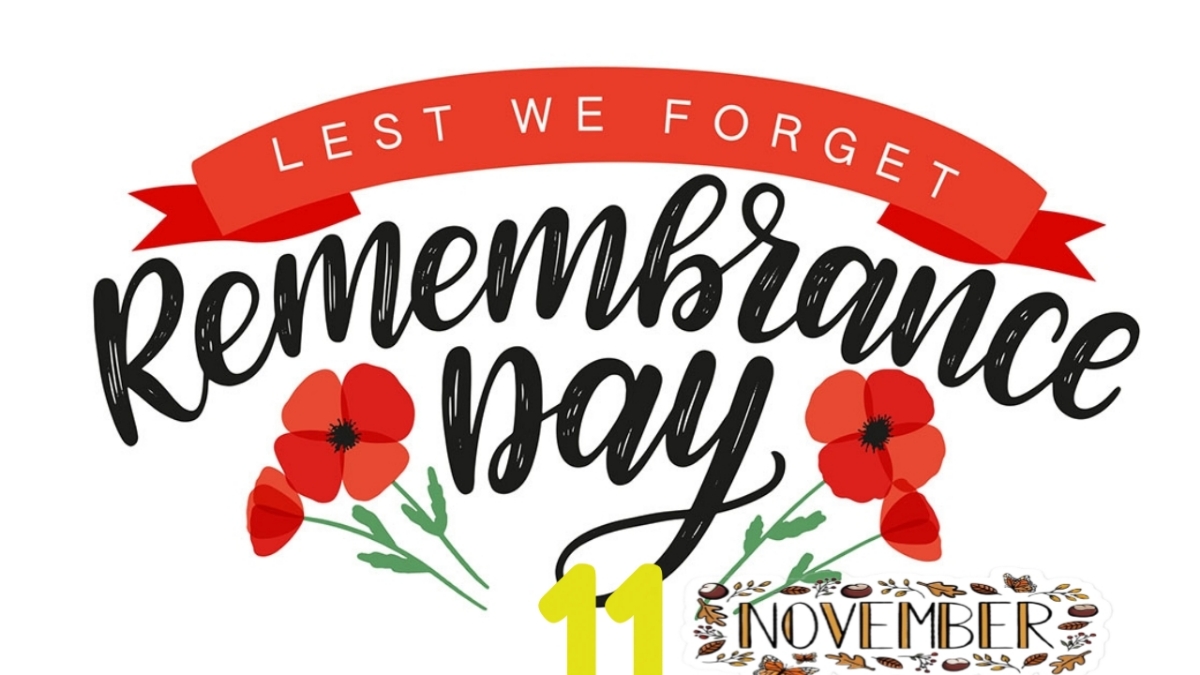Remembrance Day, observed on November 11 each year, holds profound significance as a day dedicated to honoring the memory of those who sacrificed their lives during the First World War and subsequent conflicts. Known by various names in different countries, including Armistice Day and Veterans Day, it commemorates the end of World War I on November 11, 1918, symbolizing the hope for peace. This day is marked globally by solemn ceremonies and tributes, where citizens pause to remember and express gratitude for the freedom preserved through the ultimate sacrifice of these courageous individuals.
Why November 11 Is Chosen as Remembrance Day
The date November 11 is significant because it marks the end of hostilities in World War I. On this day in 1918, at precisely the 11th hour of the 11th day of the 11th month, an armistice was signed between Germany and the Entente powers, formally ceasing the brutal warfare that had devastated Europe. The armistice was signed between 5:12 and 5:20 a.m. on that day but came into effect at 11:00 a.m., symbolizing a step toward peace and the end of the bloodshed.
Observing Remembrance Day: Traditions and Symbols
Observing Remembrance Day involves a variety of solemn traditions that have endured for over a century, with millions of people participating in ceremonies across the world. Among the most iconic symbols is the red poppy, worn as a tribute to the fallen soldiers. This tradition originated from the famous World War I poem, “In Flanders Fields,” by John McCrae, who described the red poppies growing over the graves of soldiers in Flanders. Today, people wear poppies to honor the memory of these brave individuals and contribute to veterans’ support organizations.
Another widespread tradition is the two-minute silence observed at 11:00 a.m. on November 11. This silence offers a time for quiet reflection, allowing people to remember those who gave their lives for their country. Public ceremonies at memorials, cenotaphs, and war graves often include this silence, followed by the laying of wreaths and the recitation of commemorative poems and prayers.
Global Observance of Remembrance Day
While Remembrance Day originated in Commonwealth nations, its observance has expanded globally, with each country adding its unique customs to the day. In Canada, Remembrance Day is a national holiday, with extensive commemorative events held at the National War Memorial in Ottawa. In the United Kingdom, ceremonies occur at the Cenotaph in London, and the day is accompanied by the Royal British Legion’s annual poppy appeal.
In Australia and New Zealand, Remembrance Day holds special significance in conjunction with Anzac Day. Both countries observe a moment of silence and conduct services to honor those who served in various conflicts. The United States celebrates November 11 as Veterans Day, dedicated not only to the memory of fallen soldiers but also to honoring all military veterans.
Remembering the Sacrifices and Legacy
Remembrance Day serves as a powerful reminder of the tragic loss of life that war brings and the necessity of peace. During World War I alone, millions of soldiers and civilians lost their lives, and countless others suffered the consequences of the war’s devastation. The experiences of World War I left a lasting impact on societies worldwide, shaping policies, international relations, and the collective resolve to avoid future conflicts.
The solemnity of Remembrance Day emphasizes the importance of acknowledging history to prevent its repetition. Governments, veterans’ organizations, schools, and communities around the world invest efforts to educate younger generations on the sacrifices made by earlier generations, instilling a sense of respect and gratitude.
How We Can Honor Remembrance Day
Individuals can participate in Remembrance Day in many meaningful ways. Attending local ceremonies, laying poppies at war memorials, or observing the two-minute silence are simple yet profound acts of remembrance. Many also take this opportunity to support organizations dedicated to veterans’ welfare by donating or volunteering. Additionally, some people research family members or community figures who served, bringing personal connections to the day’s observance.
Many schools and communities host educational events, including storytelling sessions, art installations, and history presentations, to help people of all ages understand the day’s significance. Sharing stories and educating others about the impact of war honors the memory of those who served and fosters a shared commitment to peace.
Conclusion
Remembrance Day on November 11 serves as a unifying reminder of the importance of peace and the bravery of those who sacrificed to protect it. Across generations, it remains a day of respect, reflection, and resolve. By observing this day, we pay homage to the courage of those who stood for freedom and remember the lessons of history. The observance of Remembrance Day not only honors the past but also inspires us to uphold a future of unity, compassion, and a collective pursuit of peace.



















